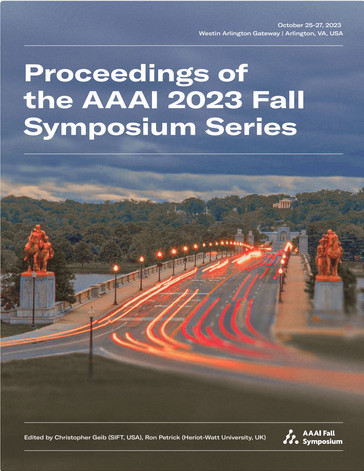Hybrid Navigation Acceptability and Safety
DOI:
https://doi.org/10.1609/aaaiss.v2i1.27643Keywords:
Colregs, Readability Of Human Scale, Path Planning, Human Acceptability, Situation AwarenessAbstract
Autonomous vessels have emerged as a prominent and accepted solution, particularly in the naval defence sector. However, achieving full autonomy for marine vessels demands the development of robust and reliable control and guidance systems that can handle various encounters with manned and unmanned vessels while operating effectively under diverse weather and sea conditions. A significant challenge in this pursuit is ensuring the autonomous vessels' compliance with the International Regulations for Preventing Collisions at Sea (COLREGs). These regulations present a formidable hurdle for the human-level understanding by an autonomous systems as they were originally designed from common navigation practices created since the mid-19th century. Their ambiguous language assumes experienced sailors' interpretation and execution and, therefore, demands a high-level (cognitive) understanding of language and agent intentions that are beyond the capabilities of current state-of-the-art of intelligent system. This position paper highlights the critical requirement of a trustworthy control and guidance system and explores the complexities of adapting COLREGs for safe vessel-on-vessel encounters considering autonomous maritime technology competing and/or cooperating with manned vessels.Downloads
Published
2024-01-22
Issue
Section
Agent teaming in mixed-motive situations

